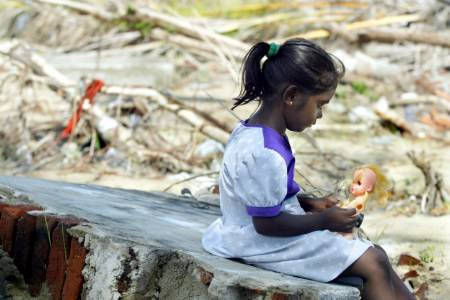We all know what happened to Japan

I have lived in Chia-yi for nearly twenty years, and there are often
large or small earthquakes occur here. Yet, I still haven't get used to it; or
maybe I should said that no one can really get used to earthquakes because you
never know whether the earthquake will become a big one in the next second. For
me, the most dreadful earthquake, which the epicenter was located in Chia-yi,
happened on October twentieth, 1999. It was one month after the 921 Chi-Chi earthquake;
however, I was in school. At that time, my family was not with me, and I could
do nothing but worry about my parents and little brother. People always realize
something after undergoing a calamity. From then on (I was only seven years old
then), I know that "my family" is the most valuable thing to me.
If I only have 20 seconds to run for my life, I'll look for my
family on the spot, fleeing to a safe place with them. As I mentioned above,
family is what I treasure most. And if I survived a big disaster like people in
Ibaraki Ibaraki is next to Fukushima
It seems that people all feel flustered while calamities happened.
20 seconds are indeed too short; for ordinary people, we will not know what to
do and will be panic-stricken in the first few seconds. Under such a rush
condition, I think it's impossible to grab all the essential things we need and
flee for safety at the same time. There's a saying that "Take precautions
before it is too late." So, what we need is an "emergency bag".
As for me, I prepared a moderate-sized backpack with the following items:
bottled water and some rations for life support; cell-phone for connecting with
the outside world and family members if I'm boxed up; a whistle is also useful
of calling for help; some money (change included, in case the cell-phone dies;
I can still use the public phones.); identification card; a flashlight; photos
of my family members (If we are separated, I can show others these photos and
find them).
Original discussion: http://ccufjublogg3.blogspot.com/2011/03/task-3.html
Original discussion: http://ccufjublogg3.blogspot.com/2011/03/task-3.html
No comments:
Post a Comment